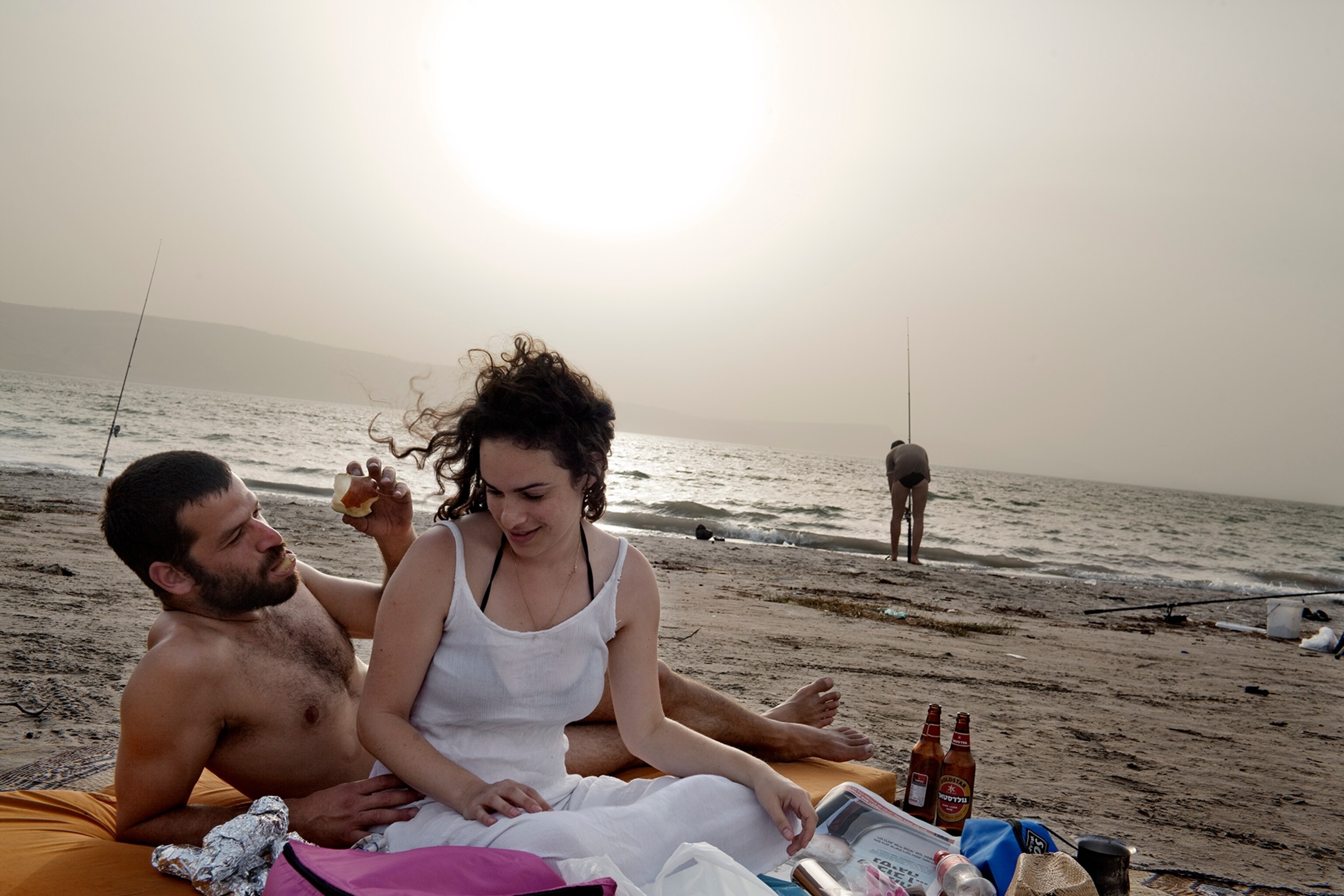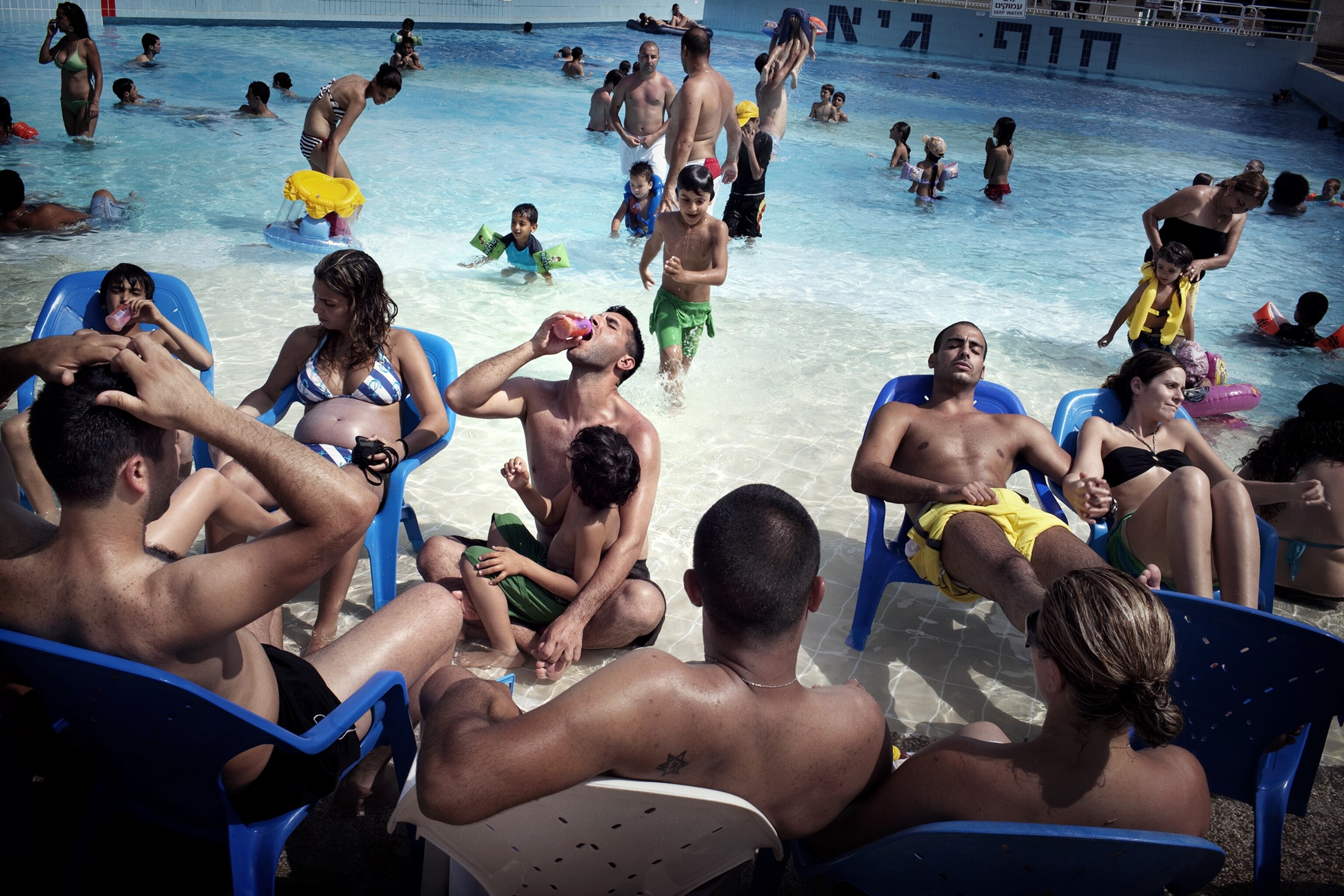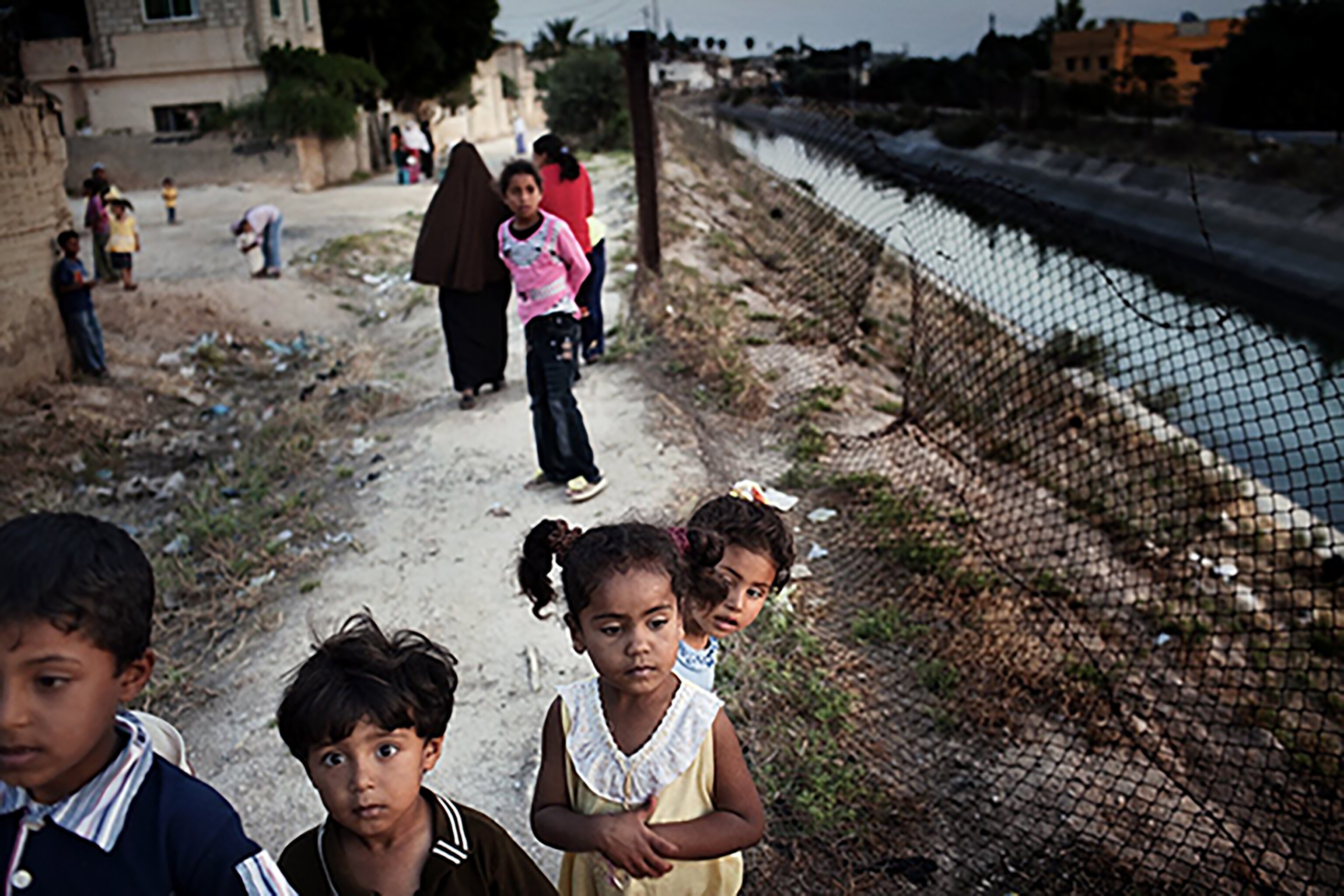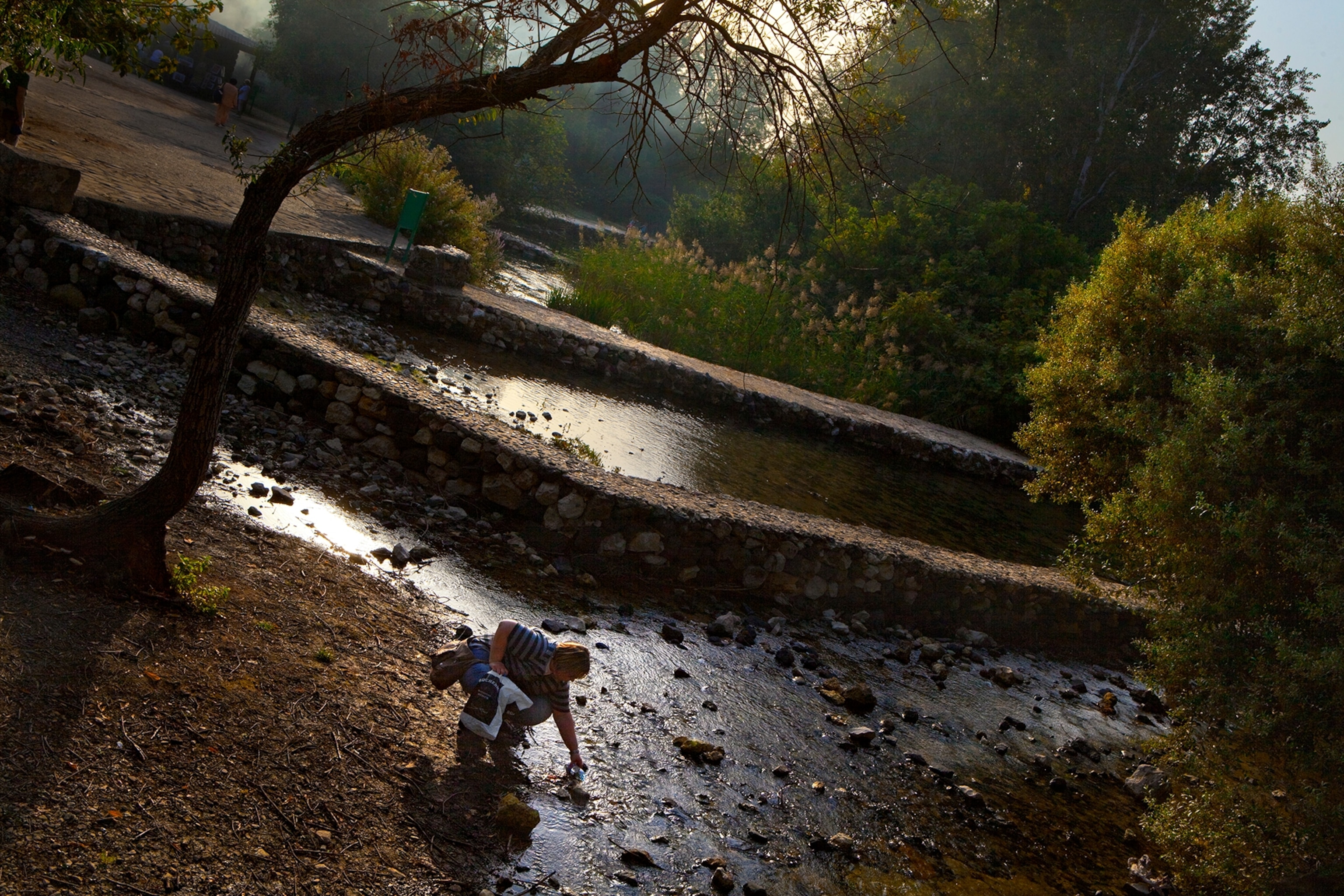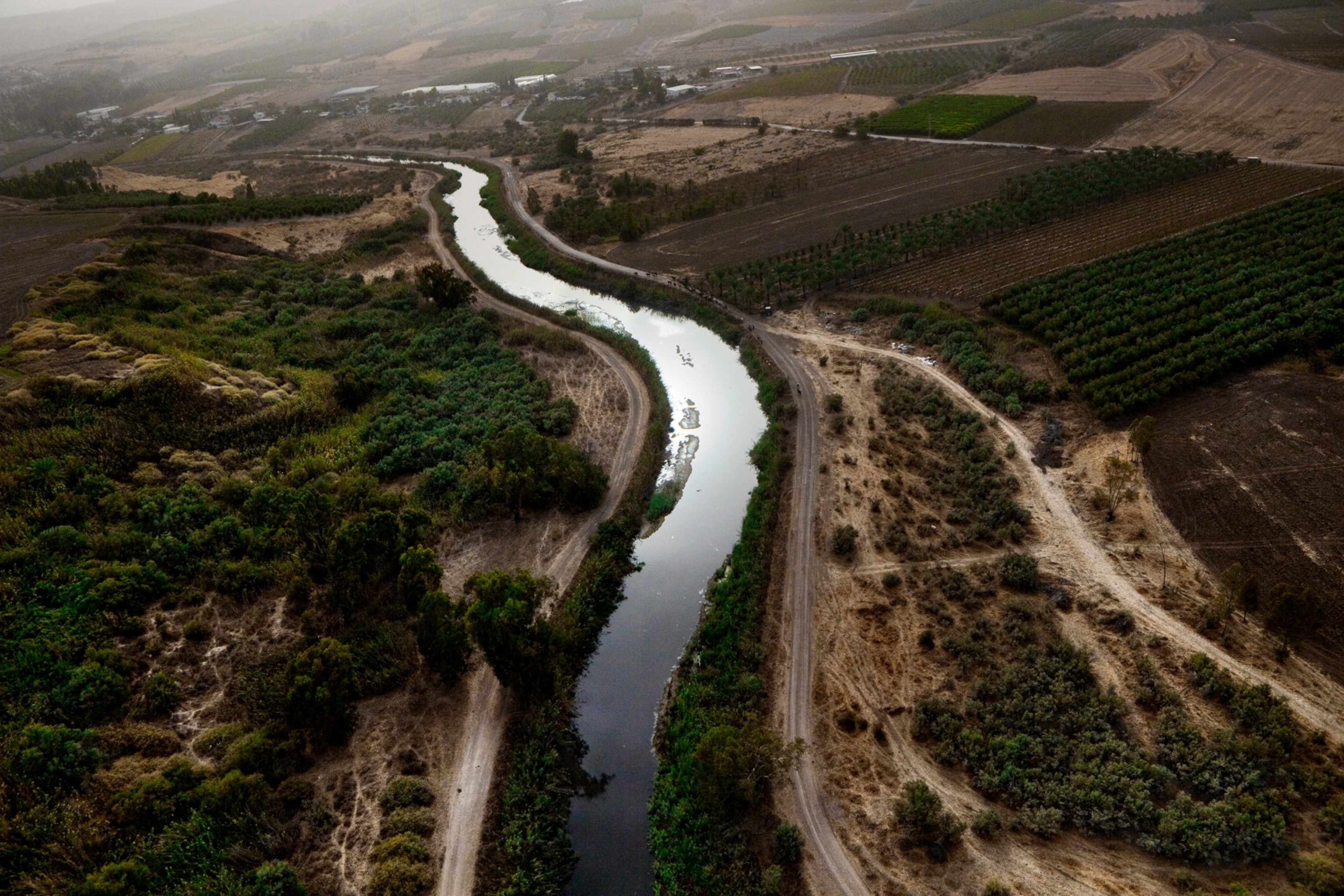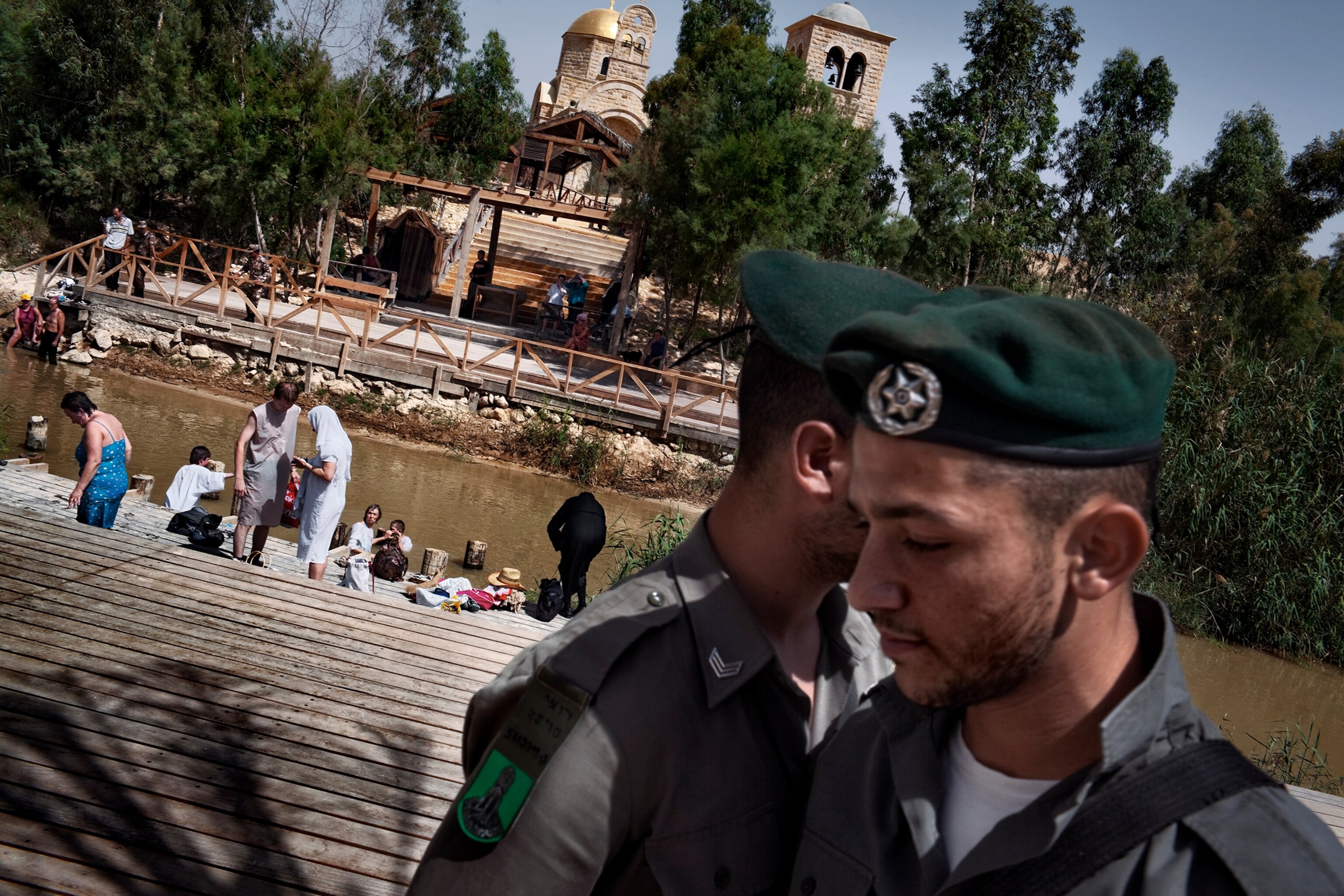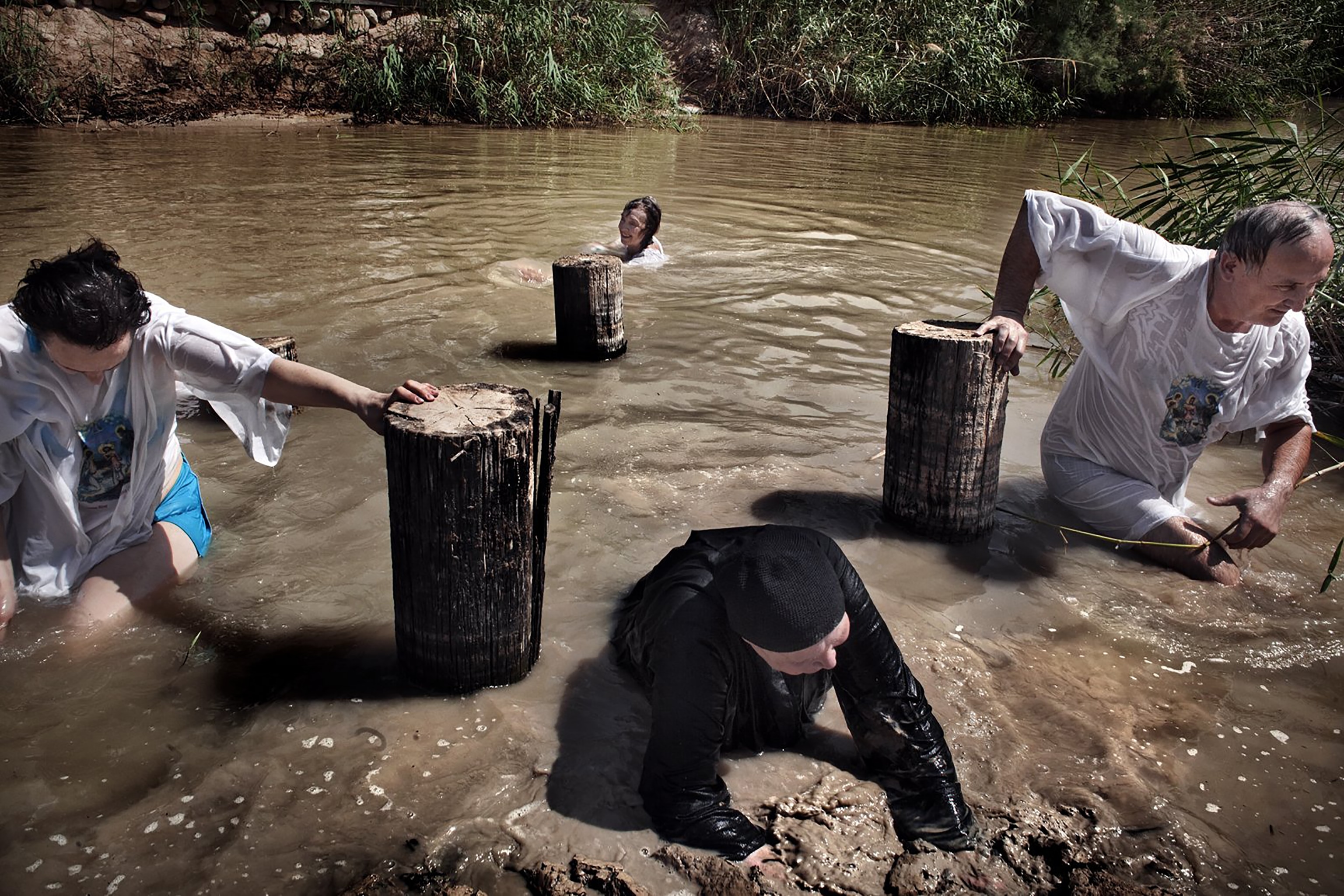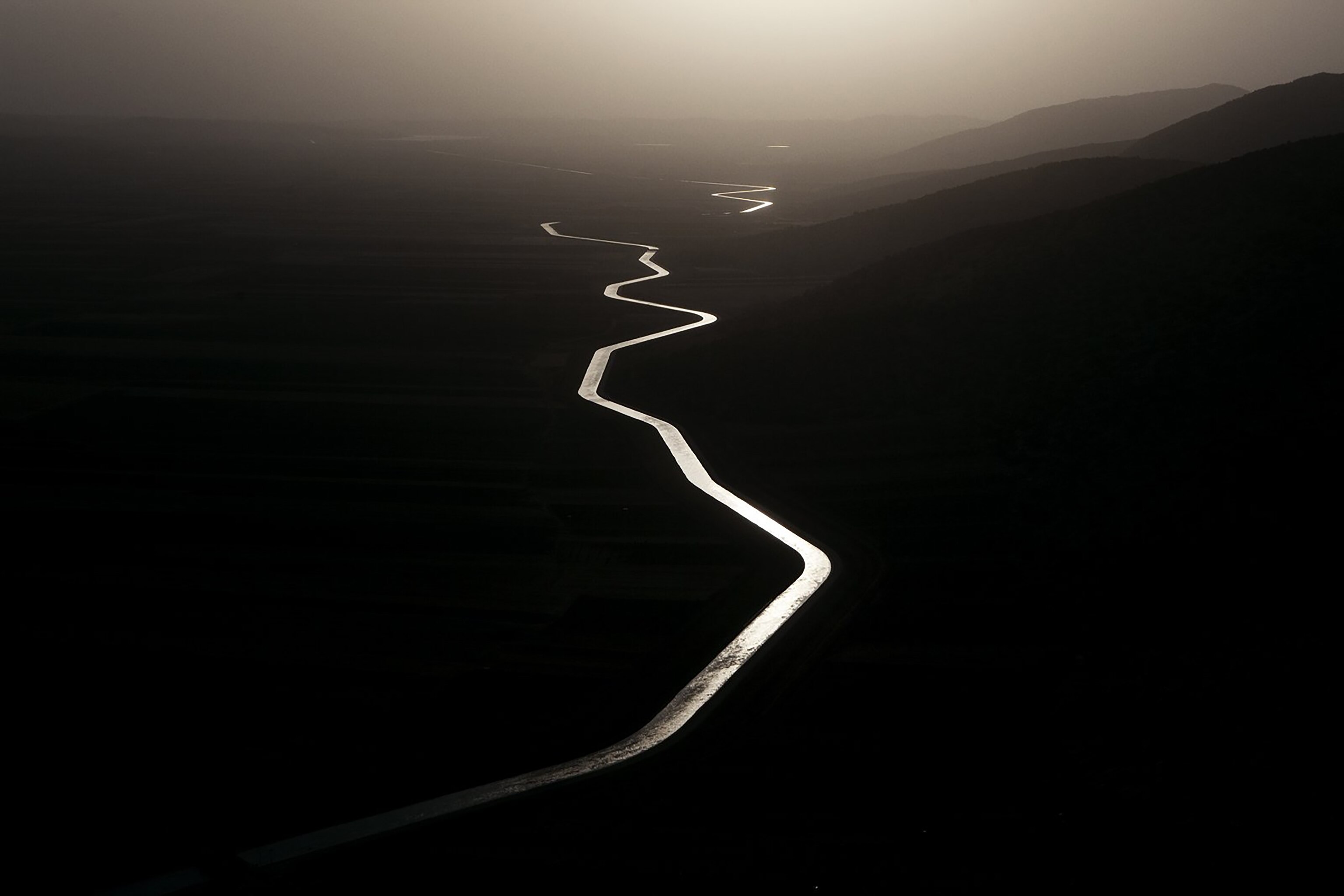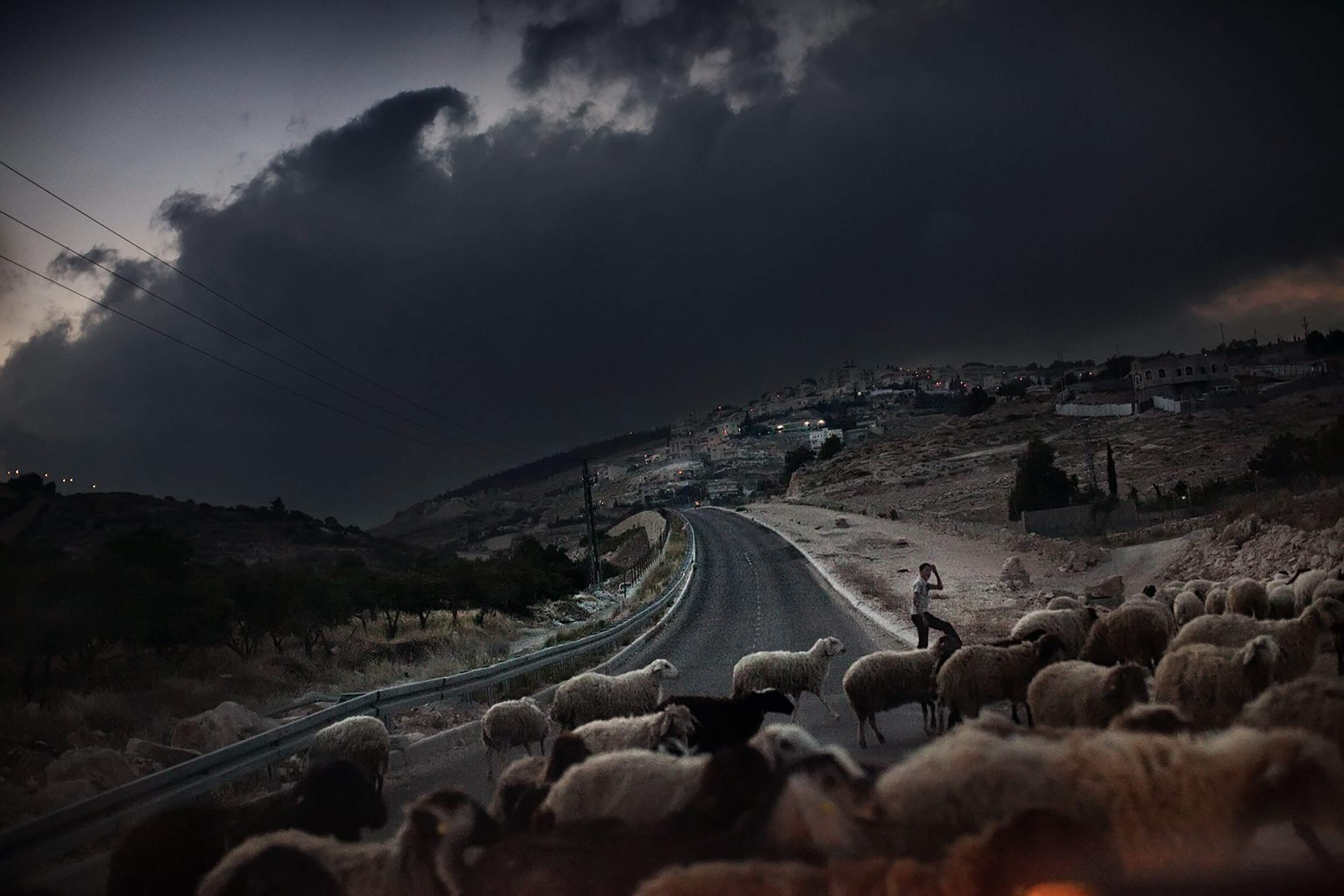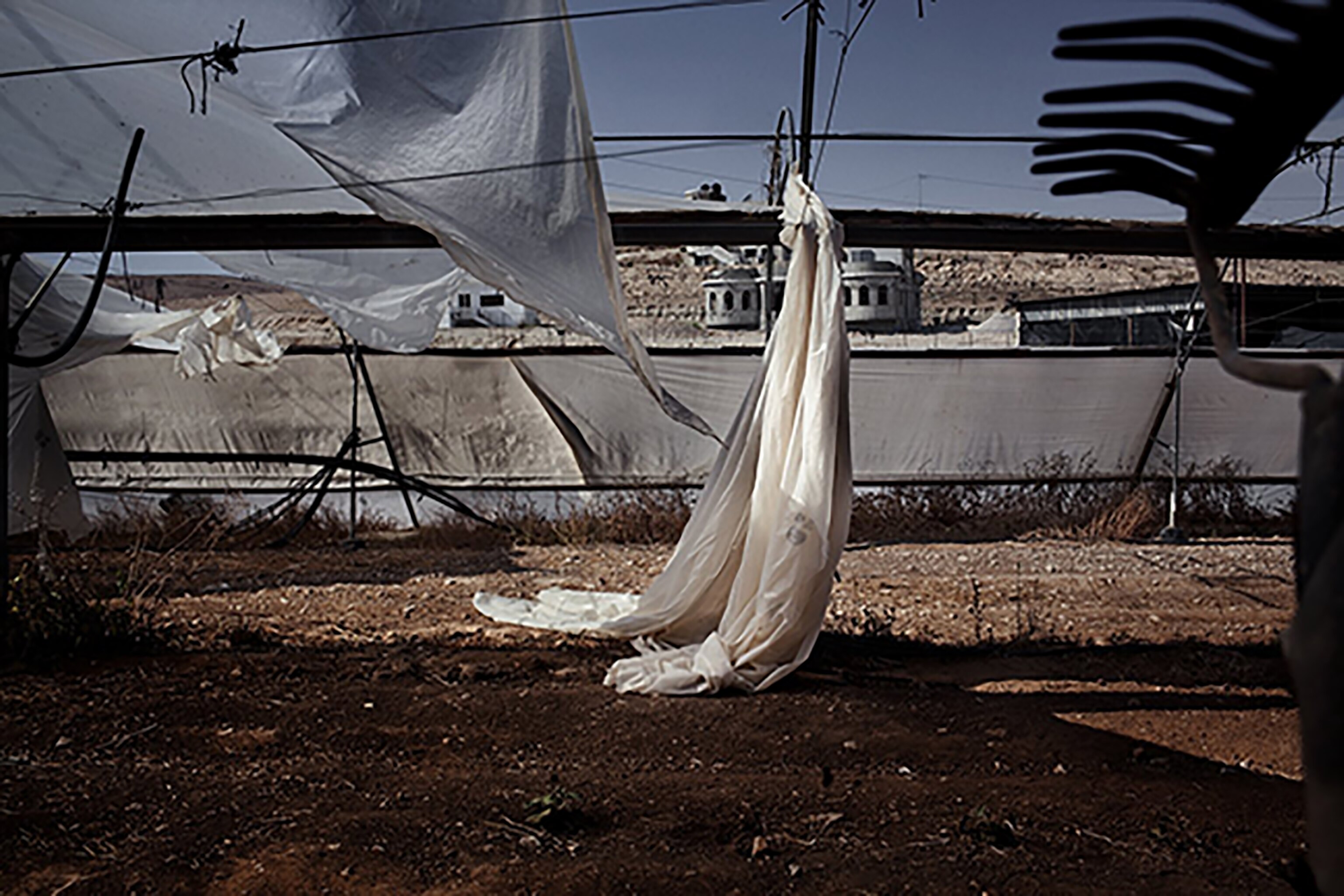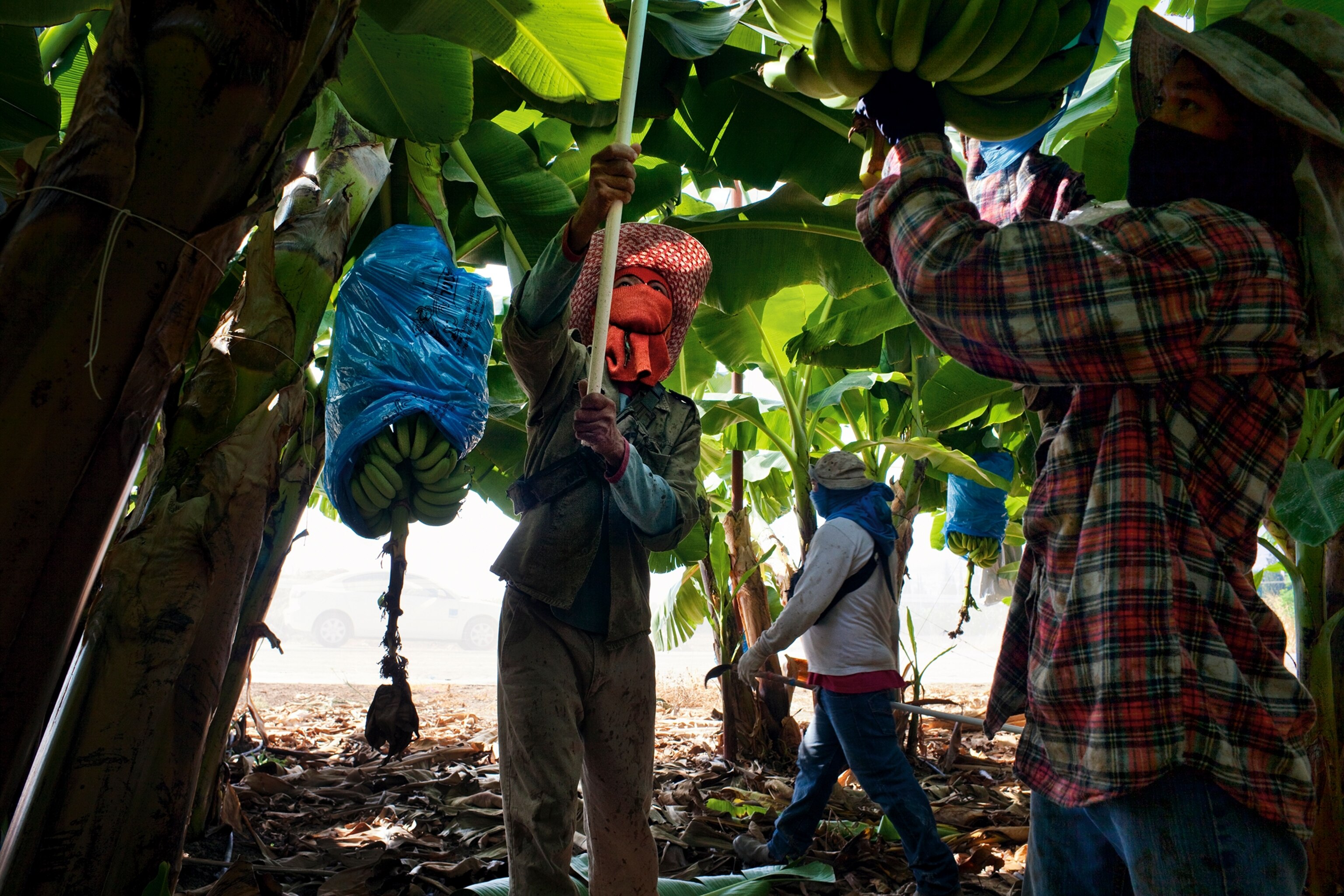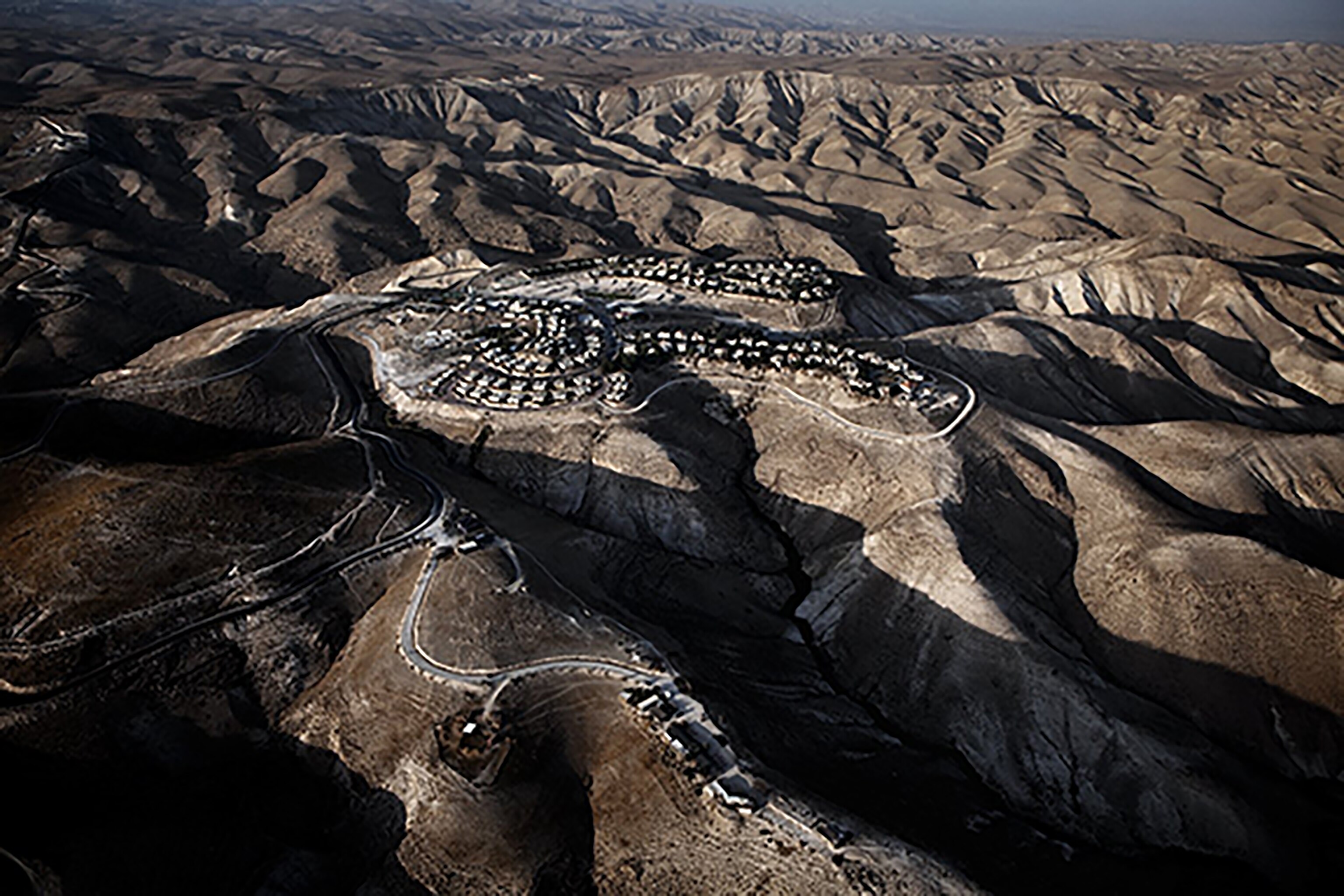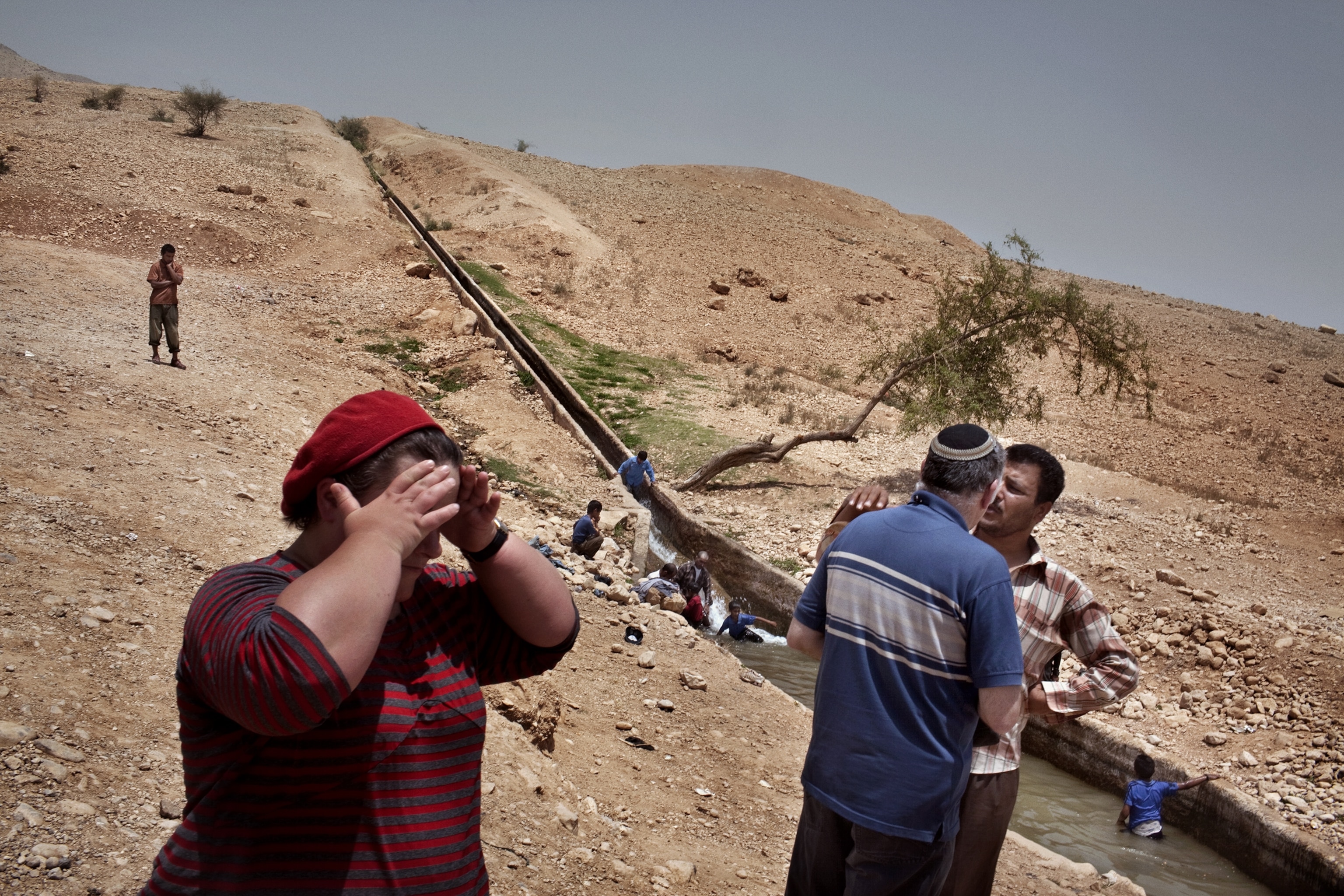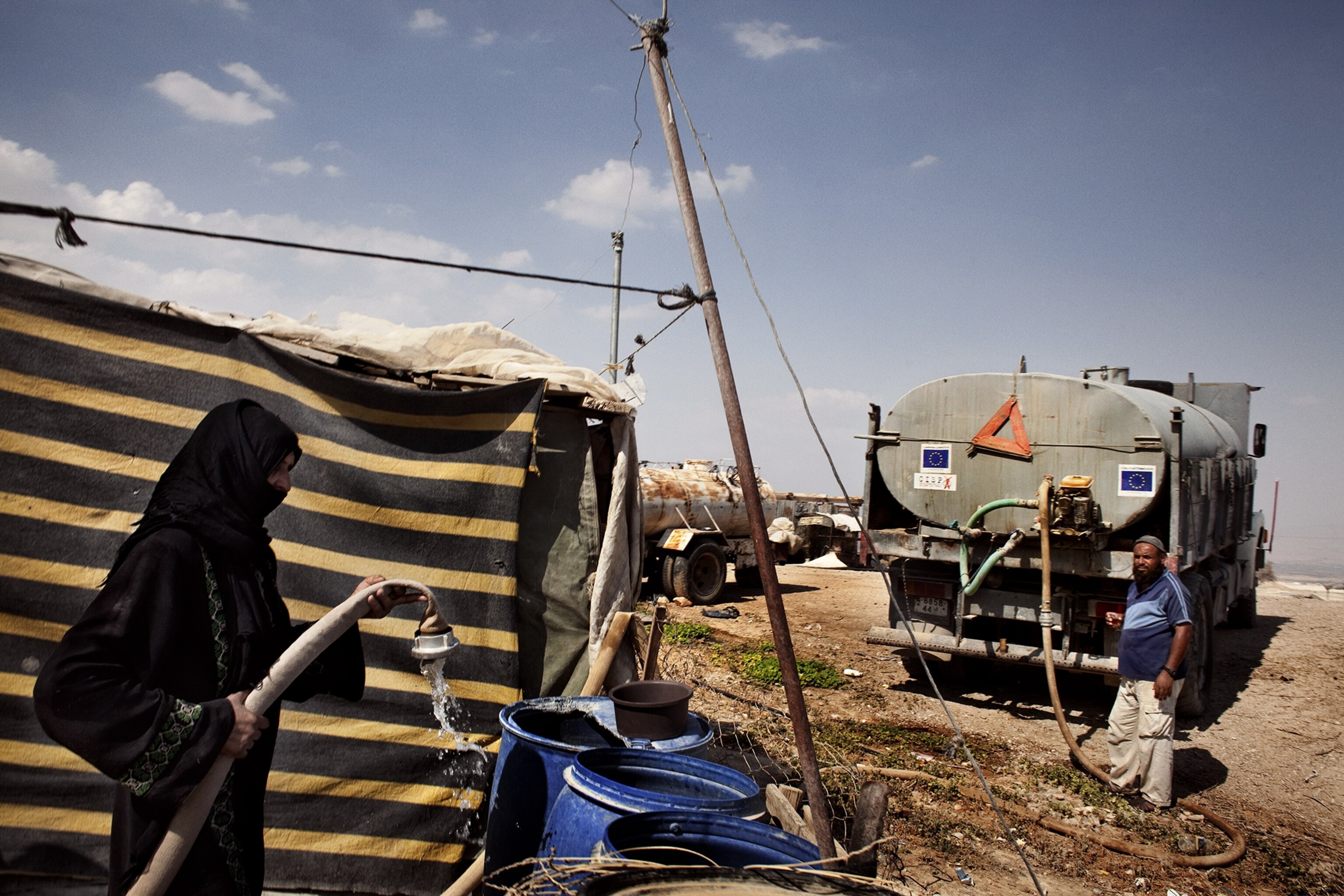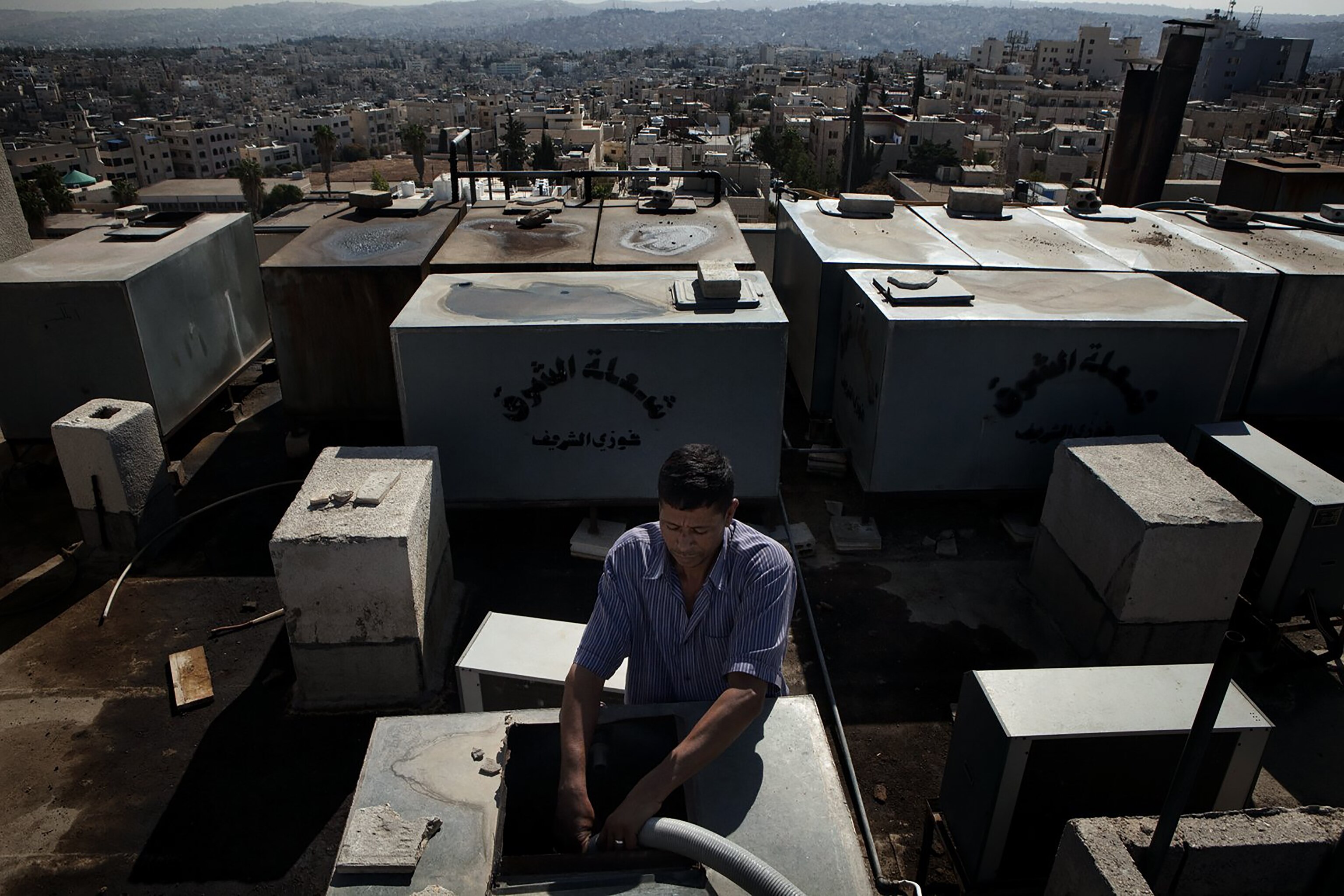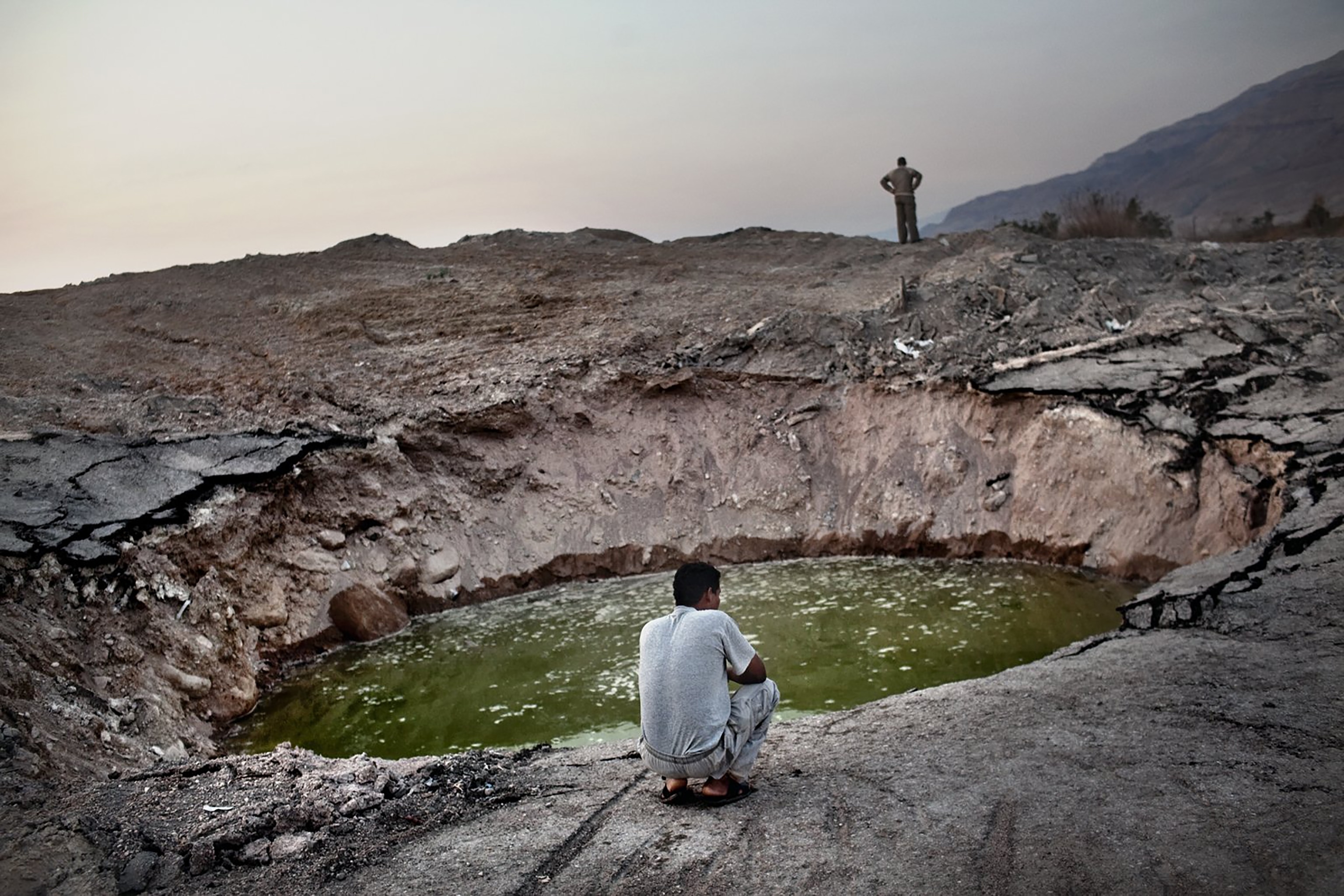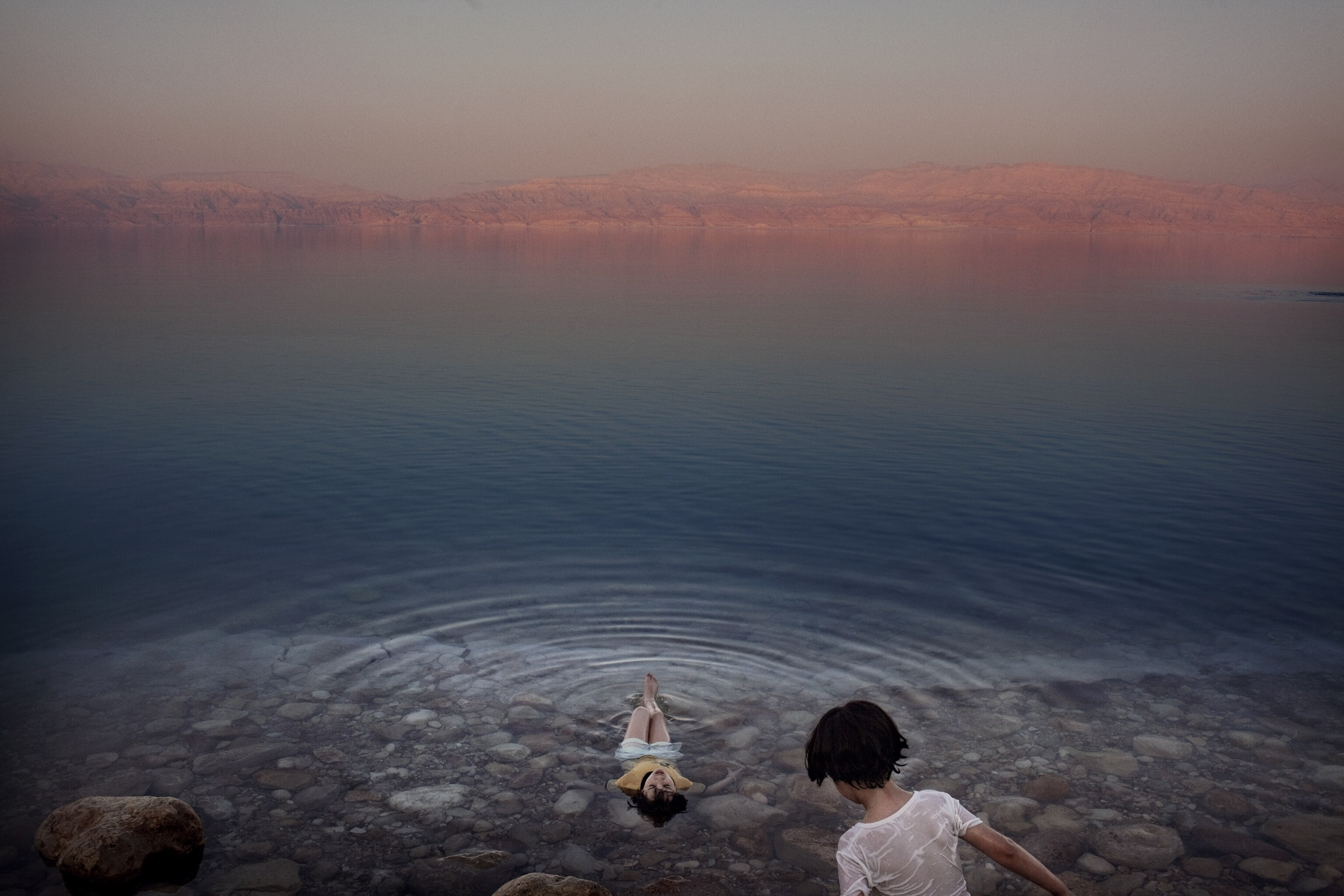Parting the Waters
A source of conflict between Israel and its neighbors for decades, the Jordan River is now depleted by drought, pollution, and overuse. Could the fight to save it forge a path toward peace?
For a biblical stream whose name evokes divine tranquillity, the Jordan River is nobody's idea of peace on Earth. From its rowdy headwaters near the war-scarred slopes of Mount Hermon to the foamy, coffee-colored sludge at the Dead Sea some 200 miles downstream, the Jordan is fighting for survival in a tough neighborhood—the kind of place where nations might spike the riverbank with land mines, or go to war over a sandbar. Water has always been precious in this arid region, but a six-year drought and expanding population conspire to make it a fresh source of conflict among the Israelis, Palestinians, and Jordanians vying for the river's life-giving supply.
All of which makes the scene one morning last July all the more remarkable. Accompanied by military escort, three scientists—an Israeli, a Palestinian, and a Jordanian—are standing knee-deep in the Jordan River. They are nearly 40 miles south of the Sea of Galilee, under the precarious ruins of a bridge that was bombed during the Six Day War of June 1967. The scientists are surveying the river for Friends of the Earth Middle East (FOEME), a regional NGO dedicated to building peace through environmental stewardship. It's a scorching hot day in a former war zone, but if these men are concerned about the danger of heat stroke, getting clonked by a chunk of falling concrete, or stepping on a mine washed downstream by a flood, they're hiding it well.
"Hey, Samer," says Sarig Gafny, an Israeli ecologist in a floppy, green hat, "check this little fellow out." Samer Talozi, a tall, self-possessed young environmental engineer from Jordan, peers over his shoulder at the tiny invertebrate his Israeli colleague has scooped into a glass sample jar. "It lives!" he says with a laugh. "That is one tough crustacean!" A few yards away, Banan Al Sheikh, a stout, good-natured botanist from the West Bank, is absentmindedly wading upstream while focusing his camera on a flowering tree amid the tall reeds and other riparian species along the riverbank. "Watch your step, my friend," Gafny calls out after him, "and whatever you do, don't step on a bleeping mine."
Besides lethal munitions, this stretch of the Jordan River—perhaps 25 feet wide and a few feet deep—is so polluted that any sign of aquatic life is worth celebrating. Part of the reason is water scarcity: In the past five decades the Jordan has lost more than 90 percent of its normal flow. Upstream, at the Sea of Galilee, the river's fresh waters are diverted via Israel's National Water Carrier to the cities and farms of Israel, while dams built by Jordan and Syria claim a share of the river's tributaries, mostly for agriculture. So today the lower Jordan is practically devoid of clean water, bearing instead a toxic brew of saline water and liquid waste that ranges from raw sewage to agricultural runoff, fed into the river's vein like some murky infusion of tainted blood.
The fight over the Jordan illustrates the potential for conflict over water that exists throughout the world. We live on a planet where neighbors have been clubbing each other over rivers for thousands of years. (The word "rival," from the Latin rivalis, originally described competitors for a river or stream.) Worldwide, a long list of watersheds brims with potential clashes: between India and Pakistan over the Indus; Ethiopia and Egypt over the Nile; Turkey and Syria over the Euphrates; Botswana and Namibia over the Okavango. Yet according to researchers at Oregon State University, of the 37 actual military conflicts over water since 1950, 32 took place in the Middle East; 30 of them involved Israel and its Arab neighbors. Of those, practically all were over the Jordan River and its tributaries, which supply millions of people with water for drinking, bathing, and farming.
Armed confrontations over the Jordan date to the founding of Israel in 1948 and the recognition that sources of the country's needed water supply lay outside its borders. Its survival depended on the Jordan River, with its headwaters in Syria and Lebanon, its waters stored in the Sea of Galilee, and the tributaries that flow into it from neighboring countries.
Israel's neighbors face a similar situation. Their survival is no less at stake—which makes the line between war and peace here very fine indeed. In the 1960s Israeli air strikes after Syria attempted to divert the Baniyas River (one of the Jordan's headwaters in the Golan Heights), together with Arab attacks on Israel's National Water Carrier project, lit fuses for the Six Day War. Israel and Jordan nearly came to blows over a sandbar in the Yarmuk River in 1979. And in 2002 Israel threatened to shell agricultural pumping stations on the Hasbani, another of the headwaters in southern Lebanon.
Yet fights over water have also led to dialogue. "There are few major sources of water that don't cross one or more political boundaries," says Gidon Bromberg, the Israeli co-director of Friends of the Earth Middle East. "That creates a natural interdependence between countries." Sharing resources can actually be a path to peace, Bromberg says, because it forces people to work together. In the 1970s, for example, Jordan and Israel agreed on how to divvy up water even when the countries were officially at war. And cooperation between Israelis and Palestinians over water has continued even as other tracks of the peace process hit a wall.
"It seems counterintuitive, but water is just too important to go to war over," says Chuck Lawson, a former U.S. official who worked on Israeli-Palestinian water issues in the 1990s. "Regardless of the political situation, people need water, and that's a huge incentive to work things out."
One day last April, Bromberg led me to the natural spring that provides water to Auja, a Palestinian village of 4,500 people that climbs the barren hills a few miles west of the Jordan River near Jericho. Fed by winter rains, the spring was flowing from a small, boulder-strewn oasis, and we trekked along the narrow concrete trough that transports water to the village, several miles away. "Auja is totally dependent on this water for agriculture," Bromberg said. "As soon as this spring dries up, there'll be no more water for farming."
Part idealist, part political operative, Bromberg was born in Israel and raised in Australia, then returned to Israel in 1988 to help build peace in the region. By challenging his own country to share water equitably, Bromberg has rattled the cages of hard-line Israeli politicians who see water as a national security issue—and as a resource to guard jealously.
Since occupying the West Bank in 1967, Israel has built a few dozen settlements in the Jordan Valley, in addition to the 120 or so elsewhere in the West Bank. The settlers' water is provided by Mekorot, Israel's national water authority, which has drilled 42 deep wells in the West Bank, mainly to supply Israeli cities. (According to a 2009 World Bank report, Israelis use four times as much water per capita as Palestinians, much of it for agriculture. Israel disputes this, arguing that its citizens use only twice as much water and are better at conserving it.) In any case, Israel's West Bank settlements get enough water to fill their swimming pools, water their lawns, and irrigate miles of fields and greenhouses.
In contrast, West Bank Palestinians, under Israeli military rule, have been largely prevented from digging deep wells of their own, limiting their water access to shallow wells, natural springs, and rainfall that evaporates quickly in the dry desert air. When these sources run dry in the summer, Bromberg said, Auja's Palestinians have no choice but to purchase water from Israel for about a dollar a cubic yard—in effect buying back the water that's been taken out from under them by Mekorot's pumps, which also lower the water table and affect Palestinian springs and wells.
As Bromberg and I followed the Auja spring east, we passed a complex of pumps and pipes behind a barbed-wire fence—a Mekorot well, drilled 2,000 feet deep to tap the aquifer. "Blue and white pipes," Bromberg said. "This is what water theft looks like in this part of the world."
Israel's chief water negotiator, Noah Kinnarti, disagrees. Underground water knows no borders, he says, and points out that Israelis must also purchase the water they use. "Palestinians think any rain that falls in the West Bank belongs to them," he told me at his kibbutz near the Sea of Galilee. "But in the Oslo talks, we agreed to share that water. They just can't get their act together to do it."
FOEME began confronting these tough issues in 2001, during a period of intense Palestinian-Israeli violence. But by focusing first on ways to improve water quality, the NGO mobilized support and built trust through its Good Water Neighbors program, a grassroots education initiative. It's also working to establish a Jordanian-Israeli peace park on a midstream island. Perhaps most important, it has pressured governments to live up to the water-sharing commitments embedded in the region's peace agreements, seeking to make the Jordan River a model for the kind of cooperation needed to avert future water wars.
"People all over the world associate the Jordan River with peace," says Munqeth Mehyar, FOEME's co-director in Jordan. "We're just helping it live up to its reputation!"
When I returned to Auja in early May, its spring had been reduced to a trickle, leaving the village as dry as a fistful of talcum powder. The fields around it lay empty and exhausted, while on Auja's one plot of flat ground, boys were playing soccer amid a swirling dust cloud they were kicking up, chasing an old leather ball worn to the consistency of flannel.
I stopped by the home of an elderly farmer named Muhammad Salama. "We haven't had running water in my house for five weeks," Salama said. "So now I have to buy a tank of water every day from Mekorot to supply my family and to water my sheep, goats, and horses." He also has to buy feed for his animals because there is no water to irrigate crops. To meet these costs he is selling off his livestock, and his sons have taken jobs at an Israeli settlement, tending the tomatoes, melons, and other crops irrigated from the aquifer that is off-limits to Palestinian farmers. "What can we do?" he asked, pouring me a glass of Mekorot water from a plastic bottle. "It's not fair, but we're powerless to do anything about it."
It was a clear day, and from his front window we could see across the parched, brown valley all the way to the thin line of gray-green vegetation marking the path of the Jordan River. For a moment, its water seemed within reach. "But to get there I'd have to jump an electric fence, cross a minefield, and fight the Israeli army," Salama said. "I'd have to start a water war!"
